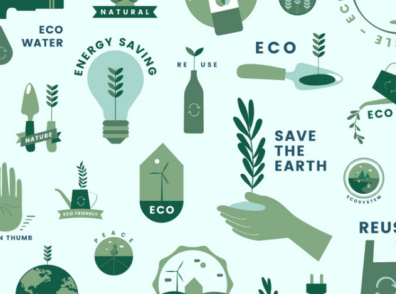An increasing number of brands consider sustainability an integral part of their business and communications strategy. After all, sustainable life on earth is widely considered as the most critical issue of our time, for governments, society, and organisations. When it comes to the ‘green’ agenda, the implementation of environmentally friendly initiatives has the potential to change the way economies and trades operate. A change in societal behavior could encourage the adoption of more environmentally sound consumption.
With these issues in mind, we set out on a journey to understand how and if sustainability matters for the Indian urban consumer. The aim of the study was to help brands understand consumer perspective of sustainability and how they can communicate these efforts in a more engaging and efficient way. We interviewed 2,000 consumers across eight metros in India. We also met with industry experts across different sectors, to understand these topics from a business perspective.
Sustainable doesn’t necessarily mean green
The world is consuming resources at an unsustainable rate, and therefore our production of goods is increasing. This is a result of economic growth. But how important is it to consumers to adopt a lifestyle which is considered sustainable?
66% of adults said it is extremely important to them, however, the issues that Indian consumers perceive as most important to sustainability are different from classic ‘green’ issues. More than half (54%) said equal rights for all should be in place. While 53% believe that companies need to provide gender equality, and 50% believe that businesses should provide decent work and economic growth.
Parity, inclusiveness and themes about education, health and well-being top the charts. Micro themes relating to the environment appear as only runners-up. This is in contrast to comparative studies we have carried out in other markets, where matters such as environmentally friendly energy appear in the top five sustainability issues.
READ ALSO: Maximize ROI on Sustainability
Brand perception
Using our brand positioning model, Brand Touch, we looked at consumer perceptions of brands that are associated with sustainability. We found out which personality traits sustainable brands have in common, and which traits bind together those that are not considered sustainable.
People perceive sustainable brands as friendly and helpful. They are thought of as more inclusive and ‘we-oriented’. Organisations perceived as supportive, down-to-earth and empathic are building an eco-friendly image and tend to be more popular. By connecting with people on an emotional level and increasing the level of trust, brands can move in consumers’ minds from being ‘nice-to-have’, to ‘essential’.
On the other hand, brands that are not strongly associated with sustainability are perceived as expensive, impatient, and commercial. So, if these brands want to be taken seriously when they start talking about sustainability, they need to prove their benefits and values to consumers first.
Brand loyalty
While there are many characteristics that can lead to brand loyalty, sustainability is key. One in two consumers remained loyal throughout lockdown to businesses considered environmentally safe – especially in categories such as FMCG and IoT which successfully marketed their sustainability commitments. If brands communicate their sustainability efforts effectively shoppers might change their brand choice to favour sustainability.
India is a solid, conscious, ambitious market. If you’re a brand in India, it is essential to understand the context and what is the consumer understanding of a certain topic. Talking about sustainability including issues that go beyond “green”, can help brands been perceived as more holistically sustainable. By using the right tone of voice and approaching issues that resonate with consumers brands will maximize the impact of their communication.
Learn more
If you want to know more about the learnings of our report and how your company can benefit from these insights, please do not hesitate to contact our Nepa India team.
Esha Nagar, Managing Director, Nepa India

